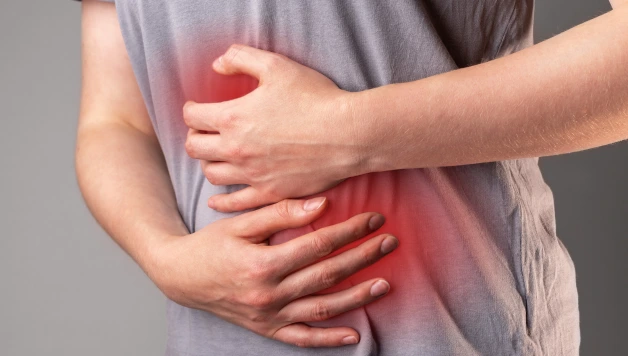Key Takeaways:
- During menopause, digestion can be impacted due to hormonal changes.
- Talk to your doctor about it, as it may relieve menopause symptoms, including digestive issues.
- During menopause, probiotics can restore bacterial balance in the gut and relieve digestive discomfort.
- Eat a well-balanced diet with plenty of fibre, whole grains, fruits, and vegetables to support healthy digestion during menopause.
- Stay active, manage stress, and maintain a healthy weight to promote better digestive health during menopause.
Are you a woman experiencing menopause and struggling with digestive health issues? Don’t worry; you’re not alone! Menopause brings about various changes in a woman’s body, including hormonal fluctuations that can affect digestion. This blog will explore the relationship between menopause and digestive health and discuss common issues women face during this time. Ultimately, it’ll provide practical strategies for finding relief. So, to improve your digestive health during menopause, keep reading!
Understanding Menopause and Its Impact on Digestive Health:
Menopause is a natural biological process in women, usually around their late 40s or early 50s. During this time, the production of reproductive hormones, such as estrogen and progesterone, decreases significantly. While menopause is primarily associated with changes in the reproductive system, it can also have a notable impact on other areas of a woman’s health, including digestion.
Common Digestive Issues during Menopause:
Menopause can bring about common digestive issues that have the potential to disrupt a woman’s daily life. Let’s take a closer look at a few of these concerns:
- Bloating: Many women experience bloating during menopause, characterized by a feeling of fullness and tightness in the abdomen. It can be caused by hormonal changes that affect how the body processes and eliminates waste.
- Constipation: Hormonal fluctuations can also lead to changes in bowel movements, resulting in constipation. Reduced estrogen levels can slow down the movement of food through the digestive system, making it harder to pass stools.
- Indigestion and Heartburn: Menopause can contribute to an increase in indigestion and heartburn symptoms. The decrease in estrogen levels may weaken the muscles that control the opening and closing of the oesophagus, leading to acid reflux and discomfort.
Strategies for Improving Digestive Health During Menopause:
Improving digestive health during menopause is important. You can manage digestive symptoms and promote overall well-being by implementing effective techniques. Let’s explore some practical ways to achieve this:
- Balanced Diet: Focus on a well-balanced diet that includes high-fibre fruits, vegetables, whole grains, and legumes. These foods can help regulate bowel movements and prevent constipation. Additionally, limiting the consumption of processed and fatty foods is essential, as they can exacerbate digestive issues.
- Hydration: Drink plenty of water to keep your digestive system functioning optimally. Staying hydrated can help soften stools and promote regular bowel movements.
- Small, Frequent Meals: Opt for smaller, more frequent meals instead of large meals to prevent overloading your digestive system. In other words, eating smaller portions can help ease digestion and reduce bloating.
- Probiotics: Consider incorporating probiotic-rich foods, like yoghurt or kefir (a fermented milk drink), into your diet. Probiotics assist in preserving a harmonious bacterial composition within the gut, leading to relief from digestive symptoms. Moreover, you can also opt for probiotic supplements after consulting with your healthcare provider.
Some more tips for improving Digestive Health
Apart from the above strategies, here are some more tips for improving digestive health issues:
- Stress Management: Menopause can be stressful for many women, and stress can negatively impact digestion. Incorporate stress-management techniques such as deep breathing exercises, meditation, or engaging in activities you enjoy to help relax and reduce digestive discomfort.
- Regular Exercise: Regular physical activity can have numerous benefits for digestive health. Exercise stimulates bowel movements, reduces bloating, and promotes overall well-being. Try activities such as walking, swimming, or yoga.
- Medication and Supplements: Your healthcare provider may sometimes recommend medications or supplements to manage specific digestive symptoms during menopause. Always be free to consult a healthcare professional before starting any new medication.
Menopause is a phase of a woman’s life that can bring about various changes, including digestive issues. However, with the right strategies and lifestyle modifications, it’s possible to alleviate these symptoms and improve your digestive health. Following a balanced diet, staying hydrated, exercising regularly, and managing stress can relieve common digestive issues during menopause.
Remember, every woman’s experience with menopause is unique, so it’s important to consult your healthcare provider for advice and guidance. They can provide individualized recommendations based on your specific needs and medical history.
Don’t let digestive health concerns hold you back—embrace this new chapter of life with confidence and vitality! You’re not alone, and there are solutions to help you through this phase. Start implementing these strategies today and take control of your digestive health during menopause.









